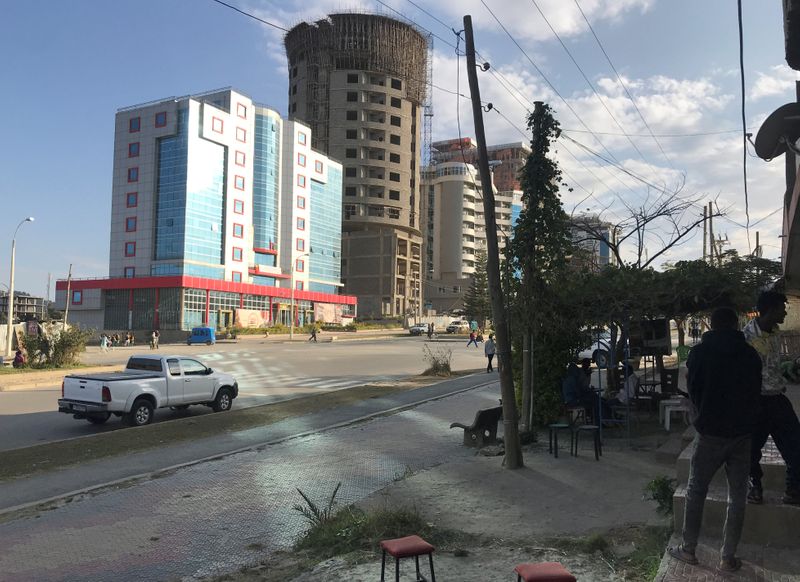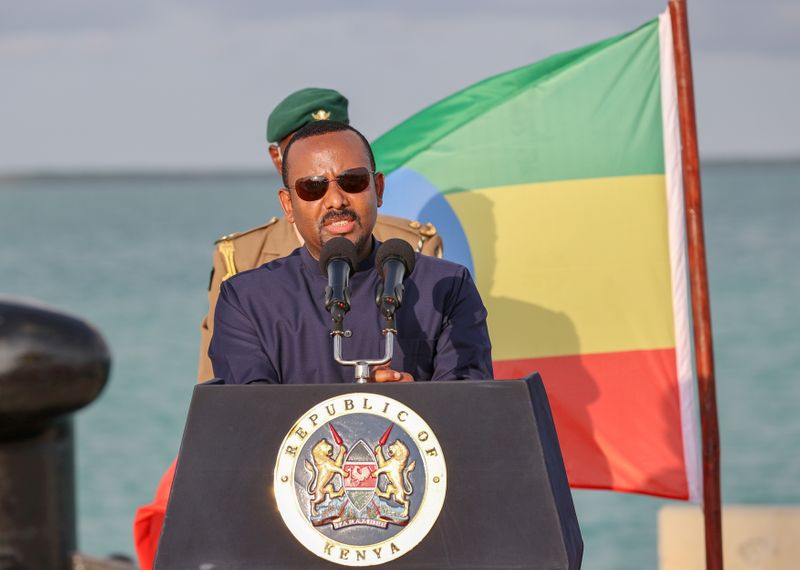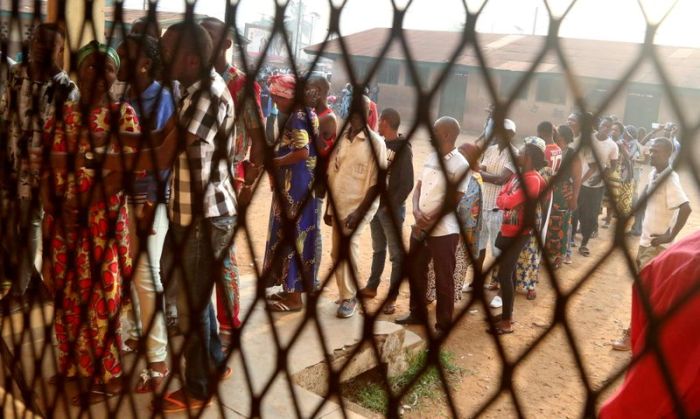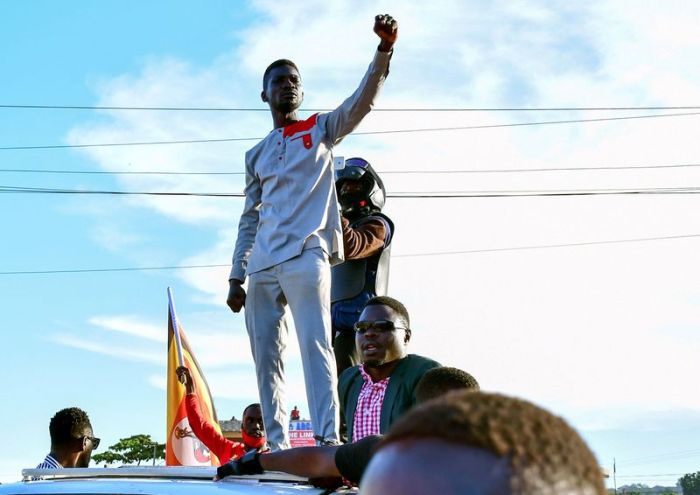NAIROBI/GENEVA (Reuters) -Banking services have resumed in the capital of Ethiopia’s northern Tigray region for the first time since war broke out there on Nov. 4, state-affiliated Fana TV said on Monday, as the government seeks to restore normality.
Prime Minister Abiy Ahmed’s government declared victory after seizing Mekelle from the former local ruling party, the Tigray People’s Liberation Front (TPLF), on Nov. 28.
By mid-December, it was sending civil servants back to work and reopening air space, while some power and telecoms links were restored after a blackout.
Fana cited an interview conducted by state-run Ethiopia Press Agency with Mekelle’s mayor Ataklti Haile Selassie, in which he said banks had opened their doors.
The conflict between federal forces and the TPLF is believed to have killed thousands and displaced around 950,000 people.
World Health Organization (WHO) chief Tedros Adhanom Ghebreyesus, who is of Tigrayan descent and whom Ethiopia’s military has accused of supporting the TPLF, spoke emotionally about the conflict in an end-of-year message on Monday.
Tedros, who has denied accusations of trying to procure arms and diplomatic support for Tigrayan fighters, said he had many relatives including his younger brother in the region, but had heard nothing from them after communications were cut.
“I don’t know where they are,” he told a news conference about the coronavirus from WHO headquarters in Geneva.
“As if COVID is not enough, I have that personal pain also … I worry about the whole country, I cannot worry about my younger brother or my relatives alone, because the situation is worsening … So carrying all this is tough.”
Aid agencies have struggled to gain access to Tigray and are concerned about food running out, especially in refugee camps.
Abiy’s government says the conflict is finished.
Ethiopia has an election scheduled for June and is drafting a bill to create a stock market.
TPLF leaders have said they were fighting back from mountain hideouts, but there have been no reports of battles since earlier this month.
(Writing by Tim Cocks and Andrew Cawthorne; Editing by Mark Potter and Jan Harvey)


























